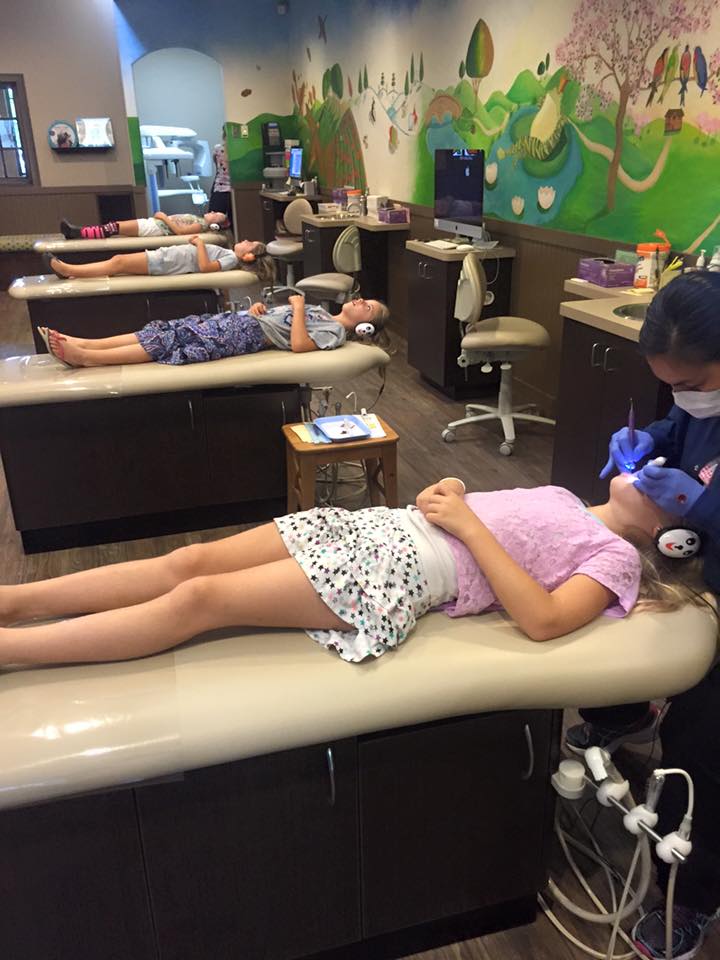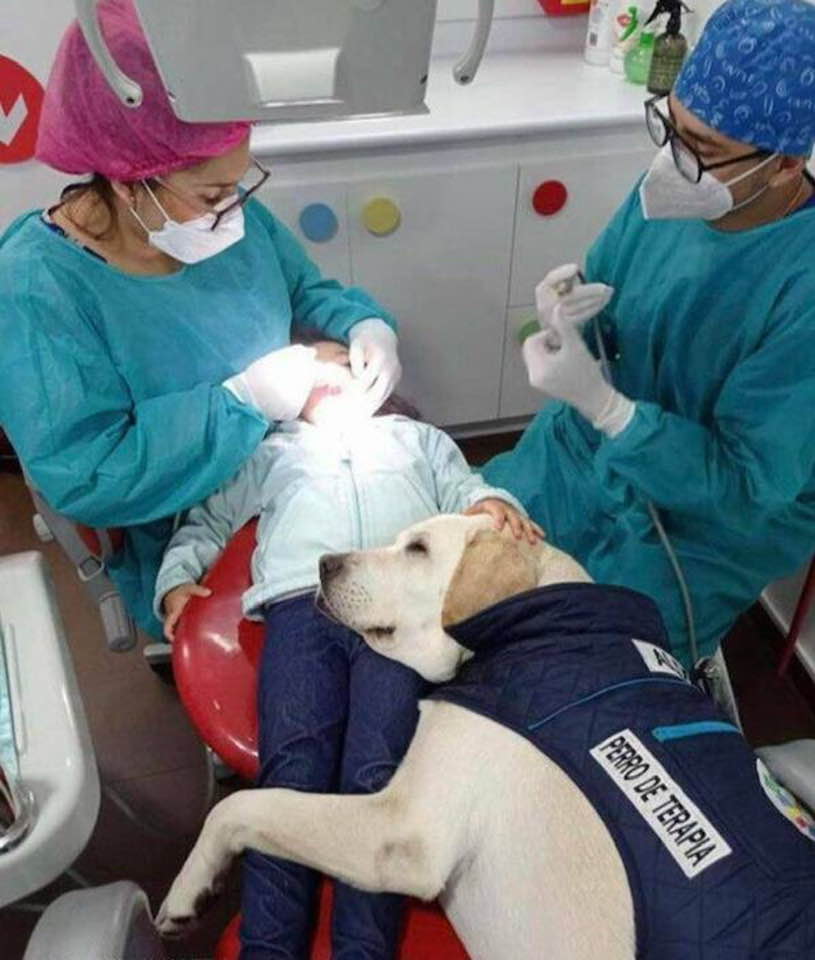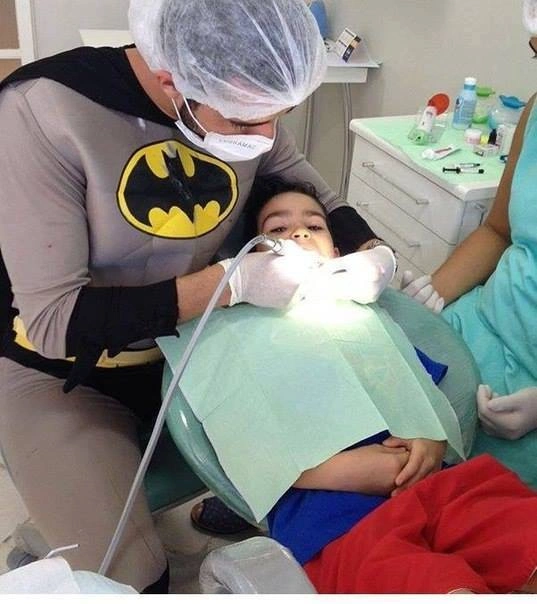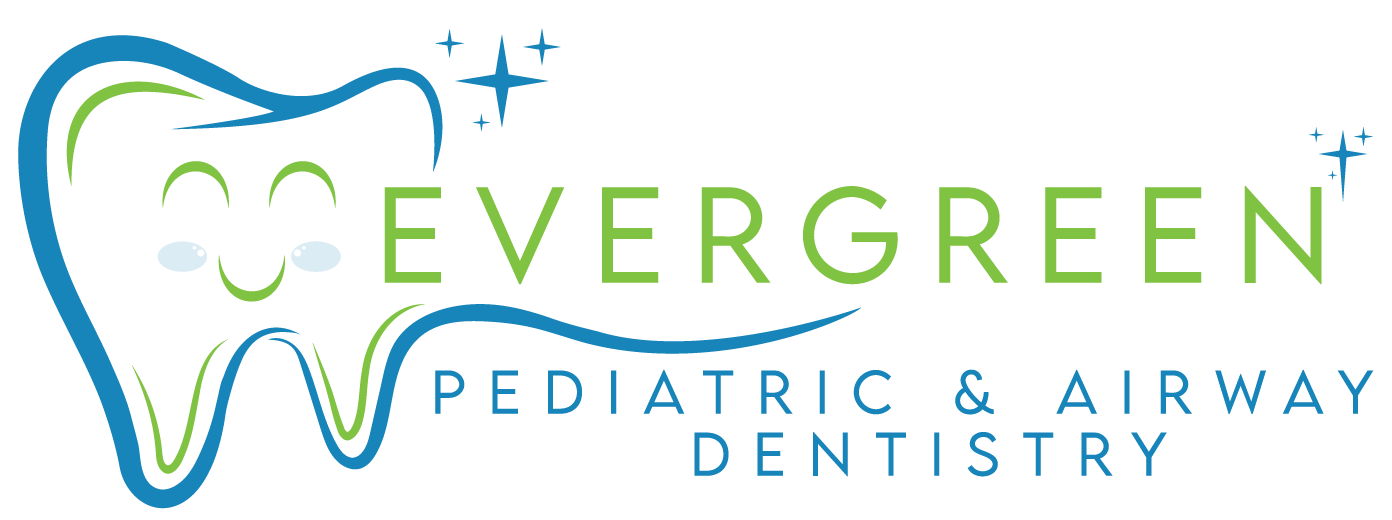How Sleep Dentistry Helps Kids Relax
Imagine walking into a dental clinic with your child, not to the sound of nervous whispers or anxious fidgeting, but to a scene of calm serenity. For many parents and children, trips to the dentist are fraught with fear and anxiety. Enter sleep dentistry: a revolutionary approach that transforms the dental experience into a stress-free, comfortable journey. This technique ensures that even the most apprehensive young patients can relax and undergo necessary dental care without distress. In this guide, we’ll explore how sleep dentistry works and why it’s becoming an indispensable tool for helping kids maintain their oral health without fear.
Understanding Sleep Dentistry: What Is It?
Sleep dentistry, also known as sedation dentistry, is a specialized practice designed to help patients, particularly children, remain calm and relaxed during dental procedures. It involves the use of sedative medications that create a state of deep relaxation or sleep-like condition, allowing dental professionals to perform necessary treatments with minimal stress and discomfort for the patient. There are various levels of sedation used in sleep dentistry, ranging from mild sedation, which keeps the patient awake but relaxed, to deeper sedation, where the patient may sleep through the procedure. Understanding sleep dentistry is essential for parents looking to ensure a positive dental experience for their children.
The primary goal of sleep dentistry is to alleviate the anxiety and fear that many children associate with dental visits. For young patients, the unfamiliar environment, strange noises, and potential pain can create significant apprehension. By using sedatives, dentists can help children feel more at ease, making it easier to conduct thorough examinations and perform necessary procedures without the child experiencing distress. This approach is particularly beneficial for children with special needs, severe dental anxiety, or those who require extensive dental work. The calming effects of sedation allow the dentist to work more efficiently and effectively, often completing multiple procedures in a single visit, which reduces the need for repeated appointments.
Safety is a crucial aspect of sleep dentistry, and it is administered under strict medical supervision to ensure the well-being of young patients. Dentists who practice sleep dentistry are specially trained in sedation techniques and monitoring vital signs throughout the procedure. This ensures that the sedation is both effective and safe, minimizing risks and complications. Parents can take comfort in knowing that their child’s comfort and safety are prioritized, creating a more positive association with dental care from an early age. By understanding what sleep dentistry entails, parents can make informed decisions about their child’s dental care, ensuring that their experiences are as stress-free and comfortable as possible.

Lip Tie Release Surgery
Alleviating Dental Anxiety: A Game Changer
Sleep dentistry is a game changer when it comes to alleviating dental anxiety in children, transforming their dental experiences from fearful to calm and manageable. Dental anxiety is a common issue among kids, often stemming from fear of pain, unfamiliar environments, or previous negative experiences. This anxiety can make routine dental visits challenging for both the child and the dentist. Sleep dentistry addresses this problem by using sedatives to help children relax, providing a serene and stress-free environment that significantly reduces fear and anxiety. By ensuring that children remain calm, dental professionals can carry out necessary treatments more efficiently and effectively.
One of the most significant advantages of sleep dentistry is its ability to create a positive dental experience, which can have long-term benefits for a child’s oral health. When anxiety is minimized, children are more likely to cooperate during dental procedures, making the process smoother and less traumatic. This positive interaction helps build trust between the child and the dentist, fostering a more favorable attitude towards future dental visits. Over time, children who have experienced the calming effects of sleep dentistry are less likely to develop a lifelong fear of dental care, leading to better oral hygiene practices and regular dental check-ups as they grow older.
Moreover, sleep dentistry allows for comprehensive care in fewer appointments, which is particularly beneficial for children who may need extensive dental treatments. Instead of multiple stressful visits, sedation enables the dentist to perform several procedures in one session, reducing the overall time spent in the dental chair. This approach not only alleviates anxiety but also minimizes disruption to the child’s routine and education. Parents can rest assured knowing that their child’s dental needs are being met in the most comfortable way possible, ultimately promoting a healthier smile and a more positive outlook on dental care. By alleviating dental anxiety through sleep dentistry, children can enjoy a more relaxed and pleasant dental experience, paving the way for lifelong oral health.
Ensuring Safety: The Role of Trained Professionals
Ensuring the safety of children undergoing sleep dentistry is paramount, and this responsibility lies in the hands of trained professionals who specialize in sedation techniques. These dental experts undergo extensive training to safely administer sedative medications and monitor young patients throughout the procedure. Their expertise includes understanding the appropriate dosages for different ages and weights, recognizing potential risks, and managing any complications that may arise. This level of specialized knowledge ensures that sedation is both effective and safe, providing parents with peace of mind as their child receives the necessary dental care without distress.
The role of dental professionals extends beyond just administering sedation; it also involves comprehensive pre-procedural assessments to determine the most suitable sedation method for each child. Prior to any treatment, the dental team conducts a thorough evaluation of the child’s medical history, current health status, and any previous reactions to anesthesia or sedatives. This assessment helps in tailoring the sedation plan to the individual needs of the child, ensuring maximum safety and comfort. Additionally, the presence of skilled professionals during the procedure allows for continuous monitoring of vital signs such as heart rate, blood pressure, and oxygen levels. This vigilant observation guarantees that any signs of distress are promptly addressed, maintaining the child’s well-being throughout the dental visit.
Post-procedural care is another critical aspect managed by trained professionals in sleep dentistry. After the dental work is completed, the professional team ensures that the child wakes up safely from sedation and monitors them until they are fully alert. They provide detailed aftercare instructions to parents, including guidelines for managing any potential side effects and ensuring a smooth recovery at home. This comprehensive approach underscores the importance of having experienced professionals handle every aspect of sleep dentistry, from initial assessment to post-procedure care. By prioritizing safety and comfort, these specialists help create a positive and stress-free dental experience for children, ensuring that their oral health needs are met without fear or anxiety.
Comprehensive Care in Fewer Visits
Sleep dentistry offers a remarkable advantage by enabling comprehensive dental care in fewer visits, which is particularly beneficial for children. Many young patients require multiple dental treatments, ranging from routine cleanings to more complex procedures like fillings or extractions. Traditionally, these treatments might necessitate numerous appointments, each bringing its own set of anxieties and disruptions to the child’s schedule. Sleep dentistry, however, allows dental professionals to perform multiple procedures in a single session while the child is sedated or in a deep state of relaxation. This approach not only minimizes the number of visits but also significantly reduces the cumulative stress and anxiety associated with frequent dental appointments.
By consolidating treatments into fewer visits, sleep dentistry also enhances the efficiency and effectiveness of dental care. When children are relaxed and free from anxiety, dentists can work more swiftly and accurately, without the need for interruptions or managing a fearful patient. This uninterrupted focus ensures that each procedure is carried out with precision, leading to better outcomes and faster recovery times. Additionally, reducing the number of dental visits decreases the overall exposure to a potentially anxiety-inducing environment, helping children develop a more positive attitude towards dental care in general. Fewer visits also mean less time off school and fewer disruptions to the child’s daily routine, which is an added benefit for parents and caregivers.
Furthermore, comprehensive care in fewer visits can lead to long-term cost savings and improved oral health for children. Addressing all necessary treatments in one go reduces the likelihood of untreated dental issues worsening over time, which can result in more complicated and expensive procedures down the line. Early and thorough interventions facilitated by sleep dentistry prevent small problems from escalating, ensuring that children maintain optimal oral health. Parents can rest assured that their child is receiving high-quality, efficient dental care, fostering a foundation for lifelong healthy habits and a stress-free relationship with dental professionals. By streamlining dental treatments through sleep dentistry, children can enjoy healthier smiles with minimal disruption and discomfort.

Pediatric Sedation Dentistry
Customized Sedation Plans: Tailoring to Individual Needs
Sleep dentistry excels in its ability to offer customized sedation plans that cater to the unique needs of each child, providing a tailored approach to dental care. Children vary widely in their levels of anxiety, medical histories, and responses to sedative medications. Therefore, a one-size-fits-all approach is not effective. Instead, dental professionals develop individualized sedation plans based on an in-depth assessment of each child’s specific circumstances. This assessment includes evaluating the child’s age, weight, medical history, previous experiences with dental care, and any underlying health conditions. By considering these factors, dentists can determine the most appropriate type and level of sedation to ensure maximum comfort and safety.
The customization of sedation plans begins with selecting the right type of sedation, ranging from mild options like nitrous oxide (laughing gas) to deeper sedation methods such as oral sedatives or intravenous (IV) sedation. For some children, mild sedation might be sufficient to ease their anxiety and make them comfortable during routine procedures. In contrast, others who have severe anxiety or require extensive dental work may benefit more from deeper sedation, which allows them to remain unaware and relaxed throughout the treatment. The goal is to match the sedation method to the individual needs of the child, ensuring an optimal balance between relaxation and responsiveness, depending on the procedure being performed.
Moreover, ongoing monitoring and adjustments during the procedure are integral parts of a customized sedation plan. Skilled dental professionals continuously observe the child’s vital signs, reactions, and overall comfort level, making real-time adjustments to the sedation as necessary. This dynamic approach ensures that the child remains safe and comfortable from start to finish. Post-procedure, the tailored care continues with specific aftercare instructions designed to address the child’s unique recovery needs, promoting a smooth and swift recuperation. By implementing customized sedation plans, sleep dentistry not only alleviates anxiety but also enhances the overall quality and effectiveness of dental care for children, providing them with a positive and stress-free experience tailored to their individual requirements.
Post-Procedure Recovery: Smooth and Comfortable Transition
Dental sedation not only helps children relax during dental procedures but also plays a crucial role in ensuring a smooth and comfortable post-procedure recovery. After the effects of sedation wear off, the transition back to normal activities is carefully managed by dental professionals who provide detailed aftercare instructions. These instructions typically include guidelines on what to expect as the sedation dissipates, signs to watch for that might indicate complications, and advice on when the child can safely resume eating and drinking. Parents are given clear directions on how to monitor their child’s recovery at home, ensuring that any residual effects of sedation are handled appropriately, contributing to a seamless and stress-free return to their daily routine.
One of the key benefits of sleep dentistry is the reduced discomfort and anxiety experienced by the child post-procedure. Since the child remains calm and relaxed throughout the dental treatment, there is usually less associated trauma or stress, which can significantly affect their recovery. Dental professionals often use this opportunity to complete multiple treatments in one visit, meaning the child endures fewer overall visits and less cumulative stress. This comprehensive approach not only addresses immediate dental needs but also fosters a sense of trust and comfort with dental care moving forward. The positive experience of a pain-free and anxiety-free procedure can make future dental visits less daunting, embedding healthy oral hygiene practices from a young age.
Moreover, ongoing support from the dental team ensures any questions or concerns parents may have during the post-procedure period are promptly addressed. Regular follow-ups may be scheduled to monitor the healing process and ensure there are no complications. By providing continuous care and addressing any issues that arise, dental professionals help maintain the child’s comfort and well-being. This holistic approach to post-procedure recovery underscores the importance of sleep dentistry in promoting not just immediate relief from dental anxiety, but also long-term positive dental experiences. Ultimately, the careful management of the recovery process helps reinforce a child’s confidence in dental care, paving the way for a lifetime of good oral health habits.
Building Positive Associations: Long-Term Benefits
Sleep dentistry plays a pivotal role in building positive associations with dental care for children, leading to significant long-term benefits. By alleviating the fear and anxiety often associated with dental visits, sleep dentistry creates a more pleasant and stress-free environment for young patients. This positive experience is crucial in shaping a child’s attitude towards dental care. When children have consistently calm and pain-free dental appointments, they are more likely to develop a favorable view of dental professionals and procedures. This early positive reinforcement lays the foundation for lifelong oral health habits, as children who feel comfortable and safe at the dentist are more likely to maintain regular dental check-ups and preventative care.
The long-term benefits of these positive associations extend beyond just reduced anxiety. Children who experience sleep dentistry and its calming effects are less likely to exhibit dental avoidance behaviors as they grow older. Dental avoidance can lead to neglected oral health, resulting in more severe dental issues that require extensive treatment. By fostering a sense of trust and reducing fear through sleep dentistry, children are encouraged to seek timely dental care, preventing minor issues from escalating into major problems. Additionally, these positive experiences can boost overall self-esteem and confidence, as children feel more in control and less fearful of their dental health.
Moreover, the benefits of building positive associations through sleep dentistry can influence the entire family’s approach to dental care. Parents who witness their child’s positive response to dental visits are more likely to prioritize and value regular dental appointments for the whole family. This collective improvement in dental attitudes and practices can lead to better oral health outcomes for everyone involved. The ripple effect of a single child’s positive dental experience can thus contribute to a healthier, more proactive approach to dental care within the family unit. In summary, sleep dentistry not only helps children relax during procedures but also fosters lasting positive associations, ensuring long-term benefits for both individual oral health and overall family well-being.

Sleep Dentistry Service
Conclusion
Sleep dentistry is a transformative approach that has revolutionized pediatric dental care, offering a safe, effective solution for managing dental anxiety and ensuring children receive the treatment they need. By understanding what sleep dentistry entails, recognizing its role in alleviating anxiety, and appreciating the importance of tailored sedation plans, parents can make informed decisions to enhance their child’s dental experience. The benefits extend beyond immediate comfort, promoting long-term oral health habits and building a foundation of trust and positivity around dental care. Embrace the potential of sleep dentistry to transform your child’s dental visits into serene, stress-free experiences, paving the way for a lifetime of healthy smiles.
Evergreen Pediatric Dentistry
https://www.google.com/maps?cid=14720788683151219551
12910 Totem Lake Blvd NE #103, Kirkland, WA 98034, United States
(425) 814-3196
https://evergreenkidsdentist.com/


